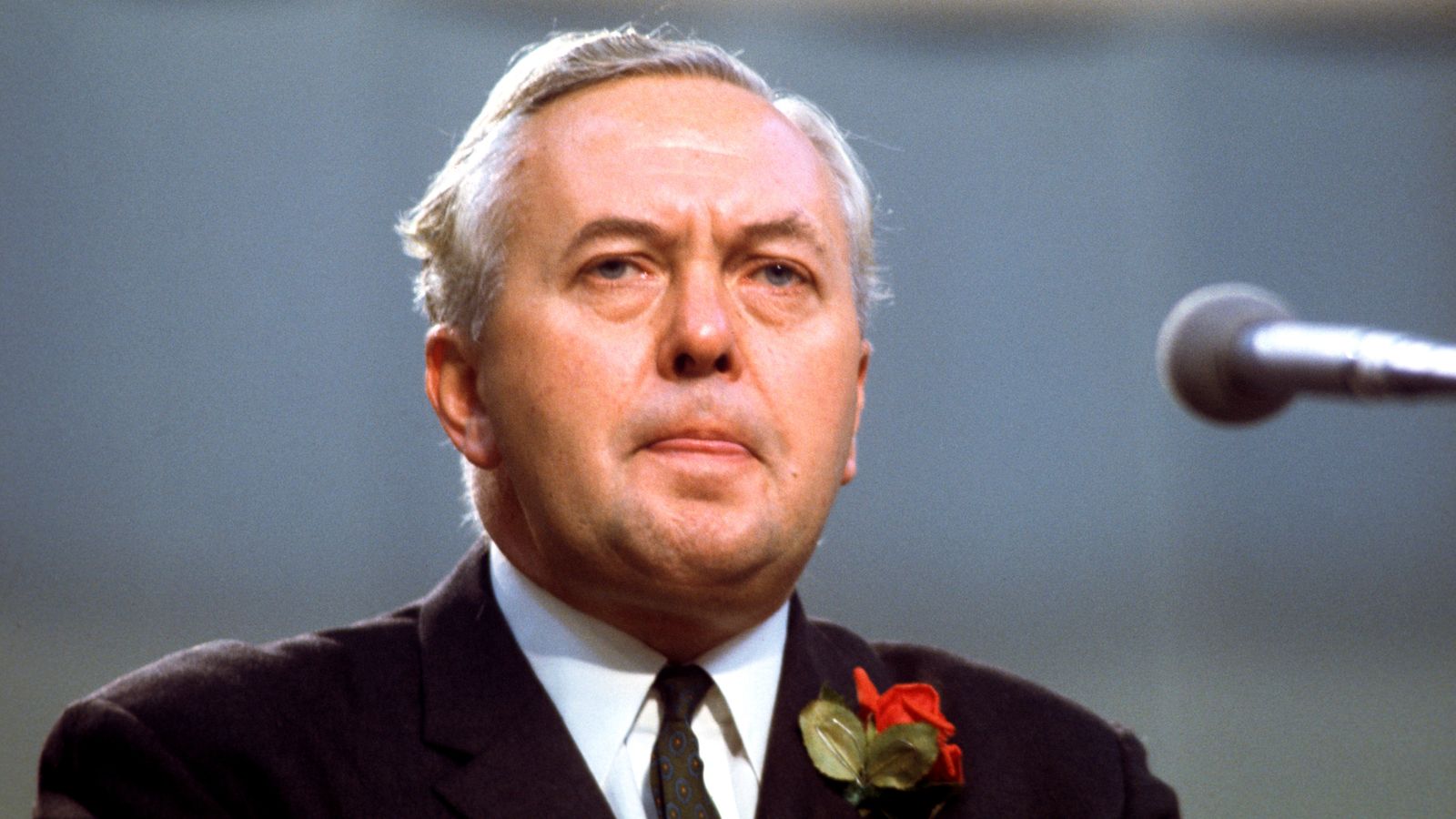Janet Hewlett-Davies, the Downing Street deputy press secretary who it’s claimed had a secret affair with Harold Wilson in the 1970s, caught the eye of a controversial American president.
On a state visit to the UK in 1974, Richard Nixon – just months before he resigned over the Watergate scandal – mistook her for Marcia Williams when he saw her in 10 Downing Street.
According to The Times, the then prime minister’s press secretary Joe Haines claims Mr Wilson – prime minister from 1964-70 and 1974-76 – admitted to him in private that he had cheated on his wife Mary with Ms Hewlett-Davies.
During his time in office and subsequently, Mr Wilson was the subject of rumours of an affair with his high-profile political secretary Marcia Williams, who later became Baroness Falkender. He always denied it and successfully sued on one occasion.
In fact, while Mr Wilson was prime minister Ms Williams had two sons with a senior political journalist, Walter Terry, who was political editor of the Daily Mail and later the Sun.
Mr Nixon’s amusing mistake is revealed in the recent biography of Mr Wilson by the Labour MP and shadow minister Nick Thomas-Symonds, who describes what happened in a chapter about Wilson’s return to Downing Street for his second term as prime minister.
In a passage about Mr Wilson’s bitter battles with several national newspapers over allegations against him and Ms Williams, Mr Thomas-Symonds writes: “They were heady days, though there was some light relief.
“Nixon, on a state visit to Britain, was in Number 10 on 7 April and saw Haines’ deputy Janet Hewlett-Davies, thinking she was Marcia Williams. ‘Is this the one we’ve been reading about?'”
Ms Hewlett-Davies was so low-profile, compared with the larger-than-life personalities of Mr Haines and Baroness Falkender, that the Nixon gaffe is the only reference to her in Mr Thomas-Symonds’ Wilson biography.
She is not even mentioned in an earlier biography by historian Philip Ziegler.
Political reporter
Harold Wilson was the leader of the Labour Party between 1963 and 1976, and twice held the office of prime minister.
During his first term – from October 1964 to June 1970 – his government made a number of modernising changes to British law, including abolishing capital punishment, decriminalising homosexuality and liberalising access to birth control.
He also renationalised the British steel industry, created the Open University, and gave bus travel concessions to pensioners for the first time.
But when he called an election amid a tough economic situation, he was ousted from office and the Tories took charge of the country.
Wilson kept hold of his party’s leadership and come the February 1974 election, he formed a minority government – with a further election to break the hung parliament held in October that year seeing him gain a small majority of three.
Although he again focused on domestic issues, he also oversaw a referendum on remaining as part of the European Community – which he won.
But to everyone’s surprise, he stepped down in 1976, saying he had always planned to retire at 60.
Initially staying on as an MP, he became a peer in 1983, dubbed Baron Wilson of Rievaulx – after the abbey in his native Yorkshire.
He died in April 1993, and was survived by his wife of more than 50 years, Mary, and his two sons, Robin and Giles.
Breaking his silence after 50 years, Mr Haines told The Times that Ms Hewlett-Davies, who was his deputy, admitted to her boss that she had an affair with Mr Wilson before his resignation in 1976.
Now 96, Mr Haines told the paper: “The astonishing thing is that no one else, but me, knew of Janet’s affair with Wilson, for which she neither sought any kind of benefit whatsoever.
“It was certainly a love match on her side, and the joy which Wilson exhibited to me suggested that it was for him too.”
Keep up with all the latest news from the UK and around the world by following Sky News
In his comments to The Times, Mr Haines also says the affair greatly increased Wilson’s morale in the two years before he resigned as prime minister on the grounds of ill health in 1976.
According to The Times, the only other person said to have known about their romance at the time was Bernard Donoughue, now a veteran Labour peer, who was then the head of the policy research unit in 10 Downing Street.
He told The Times that Mr Wilson told him his friendship with Ms Hewlett-Davies “was making him happier than he had ever been”.
Like Mr Wilson, Ms Hewlett-Davies was married at the time of their relationship and was 22 years younger than him.
She died aged 85 last year, after a career in Whitehall communications and later working as PR chief to the controversial media tycoon Robert Maxwell, who was then the proprietor of the Labour-supporting Mirror group of newspapers.
During his time working in No. 10, Mr Haines was an irascible Downing Street press secretary whose relations with political journalists became so bad that at one point he suspended the daily briefings.
In the House of Commons Press Gallery, there are cartoons on the walls of the then lobby journalists – including Mr Terry, Ms Williams’ lover – locked out of Downing Street.
Mr Haines later became a Daily Mirror columnist and executive under Maxwell and has never been short of an opinion on politics and – indeed – political journalism.
Read more from Sky News:
Sunak’s ‘mad’ smoking crackdown attacked by Johnson
Top Tories could be saved by voter ID confusion – poll
Sunak apologises for wearing trendy trainers
Be the first to get Breaking News
Install the Sky News app for free
Mr Donoughue, now 89, regularly attends the House of Lords and meetings of the Parliamentary Labour Party on a Monday evening.
A cheerful and friendly soul, he was one of the sources for the BBC comedy Yes Minister, along with Baroness Falkender.






















